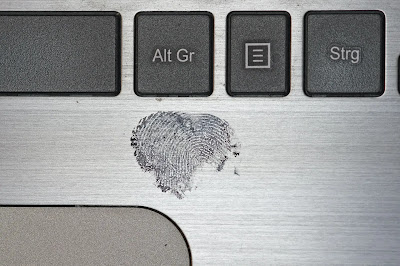In the current digital era, cyber-attacks are evolving and getting more complex, posing a hazard to both people and enterprises. It is essential to take preventative measures to safeguard your data against unwanted assaults in light of the increase in cybercrime. We'll provide you the top ten cyber security advice for the Netherlands in this blog article so that you can protect your data.
1. Use Secure Passwords:
A strong password is the first line of security against online attacks. Employ a distinctive mix of symbols, numbers, and upper- and lowercase letters. Don't use passwords that are simple to guess, such as your birthday or the name of your pet.
2. Two-factor authentication should be enabled.
Two-factor authentication strengthens the security of your online accounts by requiring a second form of identification in addition to your passwords, such as a text message or phone call.
3. Maintain Software Updates:
Cybercriminals frequently access your data by taking advantage of flaws in out-of-date software. Make sure your online browser, operating system, and antivirus applications are all up to date.
4. Backup Your Information:
Having a backup of your data might assist you in recovering lost data in the event of a cyber attack. Back up your vital data frequently to a cloud storage account or an external hard drive.
5. Make Use of a Virtual Private Network (VPN):
By encrypting your internet connection, a VPN makes it harder for hackers to intercept your data. While using public Wi-Fi networks to access the internet, you should use a reliable VPN service.
6. Watch Out For Phishing Fraud:
Cybercriminals employ phishing tactics to deceive you into disclosing personal information. Always exercise caution when responding to unknown emails, texts, or phone calls, and never divulge personal information until you are certain of the sender's identity.
7. Make use of antivirus programs:
Malicious software can be found and eliminated from your computer using antivirus software. Install reliable antivirus software, and run regular malware scans on your machine.
8. Protect your home network:
Use WPA2 encryption and change your Wi-Fi network's default username and password to protect it.
9. Restricting Access to Private Data
Always divulge private information to those you can trust, and make sure it's stored safely. When sending critical papers, use encrypted file-sharing platforms.
10. Keep an Eye on Your Accounts
Check your credit reports, social media accounts, and financial accounts frequently for any strange behavior.
You may better safeguard your data and deter thieves from accessing it by adhering to these top 10 cyber security recommendations. Stay cautious and be careful!
The following are some major ideas regarding the keyword "cyber security Netherlands":
- The Netherlands is a prime target for cyberattacks since it boasts one of the most inventive and advanced digital economies in all of Europe.
- The National Cyber Security Centre (NCSC), which was established in 2012, is one of the actions the Dutch government has done to improve cyber security in the nation.
- The NCSC is in charge of identifying, averting and countering cyber threats. It also works closely with businesses and other governmental organizations to increase overall cyber resilience.
- The Cyber Security Agenda was introduced by the Dutch government in 2018 and outlines a number of actions that will be taken to strengthen the nation's cyber security capabilities and defend against online threats.
- Some well-known cybersecurity firms, such as Fox-IT, Avast, and Kaspersky Lab, which offer a variety of cybersecurity solutions to businesses and organizations, are based in the Netherlands.
- Also, the nation has a thriving startup ecosystem for cybersecurity, with Amsterdam and The Hague serving as two of the principal centers for cybersecurity innovation.
- Notwithstanding these initiatives, the Netherlands remains open to cyberattacks, especially in the sectors of vital infrastructure and financial services.
- Several high-profile cyber attacks have occurred in the Netherlands in recent years, including the WannaCry ransomware attack in 2017, which affected several Dutch hospitals, and the Maastricht University attack in 2020, which led to the theft of personal information from thousands of students and staff.




_11zon.png)

No comments:
Post a Comment